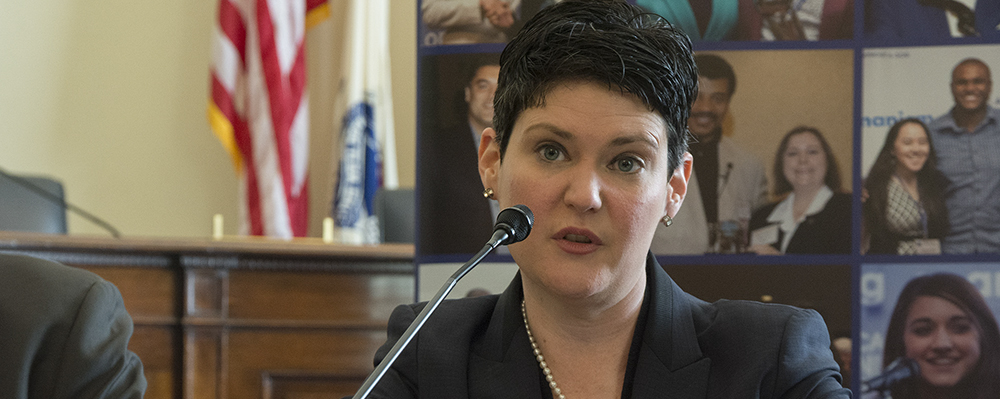
By Cherilyn Crowe
When President Donald Trump took the stage at the National Prayer Breakfast on Feb. 2, he announced his intent to open the door to church electioneering by changing a longstanding provision of the tax code.
“I will get rid of and totally destroy the Johnson Amendment,” President Trump told the crowd, “and allow our representatives of faith to speak freely and without fear of retribution.”
Just like in the movie, that Groundhog Day proclamation is part of a discussion that’s been happening repeatedly for decades, usually accompanied by misinformation and misunderstandings. His promise would result in the politicization of houses of worship, according to the Baptist Joint Committee.
The president’s use of the term “Johnson Amendment” refers to a statutory provision dating back to 1954 that applies to all 501(c)(3) organizations. It gets its name from President Lyndon Johnson, who proposed the statute when he was in the U.S. Senate.
When you give money to any nonprofit group classified by the tax code as a 501(c)(3) organization, your donation can be deducted as a charitable contribution from the income you report for your federal taxes.
Donors to all nonprofit groups designated as 501(c)(3) organizations – which includes the vast majority of churches – enjoy that benefit. The designation encourages donations, and those nonprofit groups also are exempt from paying sales tax and other taxes as they conduct business. The tax benefits for 501(c)(3) organizations come with a rule that protects against using those monetary gifts and tax-exempt dollars for candidate electioneering.
Trump’s pledge at the prayer breakfast drew an immediate rebuke from BJC Executive Director Amanda Tyler, who said repealing the rule would harm our houses of worship.
“Politicizing churches does them no favors,” she said. “The promised repeal is an attack on the integrity of both our charitable organizations and campaign finance system.”
“Inviting churches to intervene in campaigns with tax-deductible offerings would fundamentally change our houses of worship. It would usher our partisan divisions into the pews and harm the church’s ability to provide refuge,” Tyler said.
“To change the law would hinder the church’s prophetic witness, threatening to turn pulpit prophets into political puppets.”
The announcement came only two days after Tyler spoke on the very same issue to congressional staff. In briefings organized by the American Humanist Association, Tyler told staffers in the U.S. Senate and U.S. House why repealing that IRS provision would be unnecessary, unwanted and unwise.
“Pastors and churches now can engage in a wide variety of activity impacting the public square and politics while still claiming tax-exempt status,” she said.
Tyler explained that preachers already can – and do – speak about a wide range of moral and ethical issues from the pulpit. Additionally, church leaders can – and do – participate in the political process as much as they wish as long as it’s clear they are speaking for themselves and not using church resources.
Because of that most-favored tax status, a house of worship cannot tell churchgoers who to vote for or against, nor is it allowed to make political donations. “But, if a house of worship wants to wade into that political morass, it can give up its 501(c)(3) designation,” she said.
Tyler discussed how the current tax code protects the church’s “prophetic voice,” allowing it to speak truth to power without being co-opted by the government or others in control.
“As soon as the church joins at the hip with a particular candidate or party, its prophetic witness is hindered,” she said. The rule and the separation of church and state are good for the church, protecting its independent voice.
The president is not the only person claiming the current tax code is a limit on religious freedom. Lawmakers are also introducing bills that seek to change the provision. A bill dubbed the “Free Speech Fairness Act” has been introduced by Sen. James Lankford, R-Okla., and Rep. Steve Scalise, R-La. It would change the law for all 501(c)(3) nonprofits, allowing them to directly endorse or oppose candidates.
During her remarks at the briefings, Tyler also shared polling numbers that show most Americans don’t want politics in the pulpit. In 2016, LifeWay Research found eight out of 10 people said it is inappropriate for pastors to endorse a candidate in church.
From the January/February 2017 edition of Report from the Capital. You can also read the digital version of the magazine or view it as a PDF.




